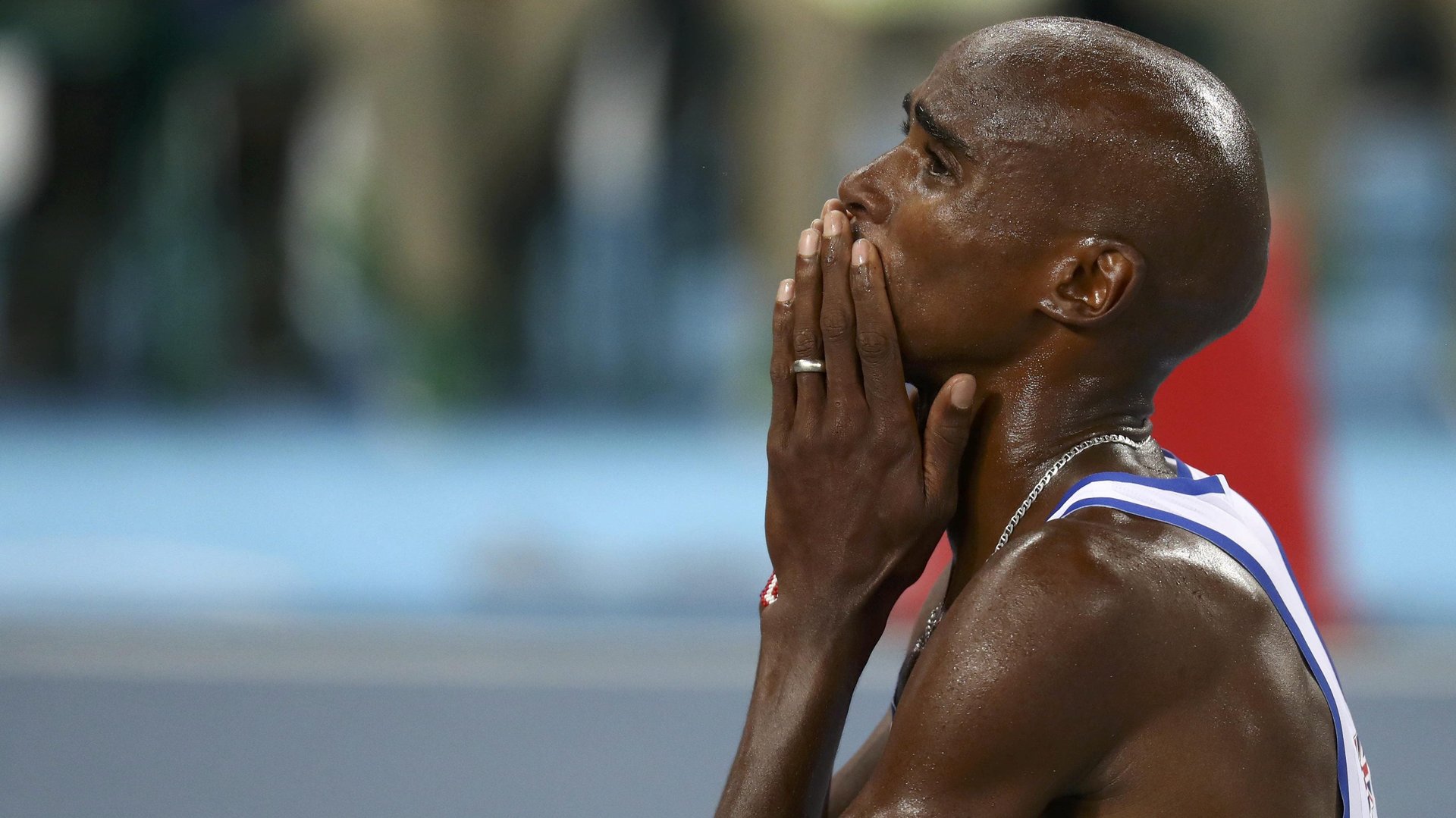Olympic champion and British knight Mo Farah may be barred from his US home by Trump’s ban
President Donald Trump’s travel ban on seven Muslim-majority countries, including three African countries—Somalia, Sudan, and Libya—has stranded doctors, students, athletes, and refugees who have waited years for resettlement in the US.


President Donald Trump’s travel ban on seven Muslim-majority countries, including three African countries—Somalia, Sudan, and Libya—has stranded doctors, students, athletes, and refugees who have waited years for resettlement in the US.
Among them is four-time Olympic champion runner Mo Farah, a dual British-Somali citizen, who is training in Ethiopia and may be barred from returning to the US, where he and his family have lived in Oregon for six years. Farah, who emigrated to the UK as a child, recently received a knighthood, one of the highest honors that the Queen can bestow. “On 1st January this year, Her Majesty The Queen made me a Knight of the Realm,” he wrote on Facebook. “On 27th January, President Donald Trump seems to have made me an alien.”
“It’s deeply troubling that I will have to tell my children that Daddy might not be able to come home,” he wrote, “to explain why the President has introduced a policy that comes from a place of ignorance and prejudice.”
Mark Parker, the CEO of Nike, Farah’s official sponsor, released a statement supporting the runner and expressing opposition to Trump’s executive order.
There has been some confusion about how dual citizens will be affected by the ban, and it’s unclear whether Farah would actually be prevented from returning home. Previously, the US state department had said dual citizens of the named countries will be subject to the ban. The UK Foreign Office said on late Sunday that dual British citizens would only be affected if traveling from any of the seven banned countries. The US embassy in the UK, however, issued a notice that dual citizens of any of the banned countries were not eligible for visas. Farah, who was born in Somalia but has a British passport, has a green card for the US.
Reports are pouring in of citizens of Somali, Libyan, or Sudanese descent whose plans have been disrupted. Almost 300 Somali refugees scheduled to leave for the US from Kenya have had their flights canceled, according to the Mogadishu radio station Radio Dalsan. Most of the group were women and children who have been waiting as many as 15 years to be resettled. They will most likely be returned to a refugee camp in northern Kenya, Dadaab, which Kenyan officials have been threatening to close.
A Somali mother and her two children coming from Kenya were reportedly detained for almost 20 hours, at points handcuffed, at Washington’s Dulles airport before being reunited with her husband after a federal court in New York issued a stay on the executive order. A Somali man whose family waited hours for him at the Seattle-Tacoma airport is believed to have been sent back to Vienna, where his flight had come from.
Suha Abushamma, 26, a first-year internal medicine resident at a clinic in Cleveland, Ohio, was prevented from returning to Ohio after taking a vacation to Saudi Arabia, where she lived before moving to the US. A citizen of Sudan with a work permit to be in the US, Abushamma was held for 10 hours before being put on a plane back to Saudi Arabia.
Another doctor, Kamal Fadlalla, a second-year resident at the Interfaith Medical Center in Brooklyn, wasn’t allowed to board his flight from Sudan back to the US. “Everything’s there,” he told ProPublica. “My bank accounts are there. My house is there. My friends. I have research there. I have my patients. I have my whole life there.”
In South Africa, home to large communities of African refugees, the tourism minister called on those banned from the US to come to the southern African country instead.